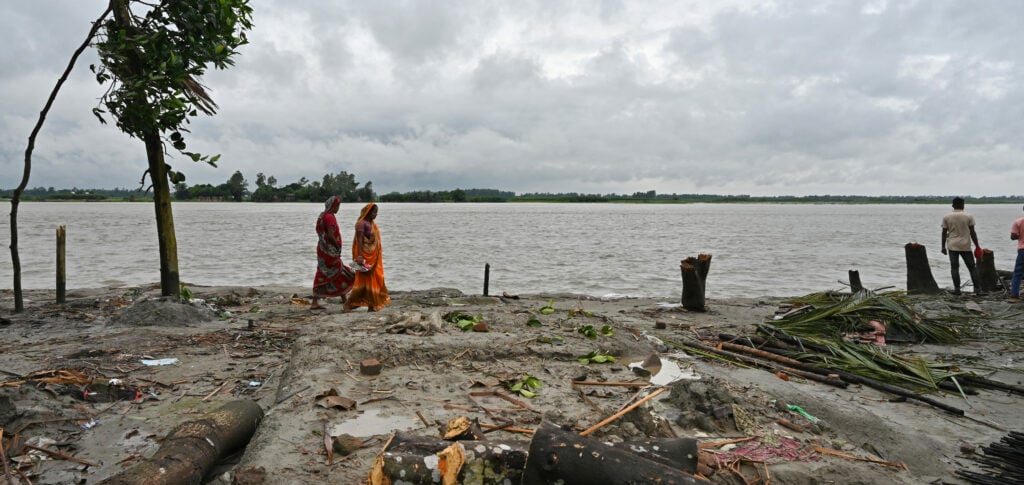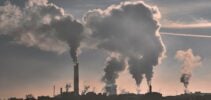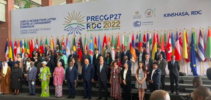🌊 Is a state submerged by the sea doomed to disappear from the map?
If the Maldives or Tuvalu were submerged by the ocean, would they be doomed to disappear from the map as a country? And its citizens? This real possibility caused by climate change represents an unprecedented challenge for the international community and for people threatened with losing even their identity.
ADVERTISING
“It is the greatest tragedy that a people, a country, a nation can suffer”, commented the former president of the Maldives, Mohamed Nasheed, to AFP.
According to UN climate experts, the Sea level has risen between 15 and 25 cm since 1900, and the pace is accelerating in some tropical areas.
If emissions of greenhouse gases If they continue at current rates, the oceans could rise another meter around the Pacific and Indian islands by the end of the century.
ADVERTISING
While it is true that it is still below the highest point of the flatter small island states, the rise in sea levels will be accompanied by an increase in storms and large waves that will contaminate the water and land with salt, making many of these atolls uninhabitable. before being swallowed by the sea.
According to a study cited by the UN climate expert panel (IPCC), five states (Maldives, Tuvalu, Marshall Islands, Nauru and Kiribati) are at risk of becoming uninhabitable by 2100, creating 600.000 stateless climate refugees.
“Cool fiction”
The situation is unprecedented. It's true that wars have wiped some states off the map, but "we've never seen a state completely lose its territory due to a physical event like rising ocean levels," says Sumudu Atapattu of the University of Wisconsin-Madison.
ADVERTISING
The 1933 Montevideo Convention on the rights and duties of States, a reference on the matter, is clear: a state is made up of a defined territory, a permanent population, a government, and the ability to interact with other states.
If the territory is underwater, or if no one can live in what remains of it, at least one of the criteria is not met.
However, “the concept of the State is a legal fiction created by the needs of international law. Thus, we could create a new fiction to include deterritorialized states”, suggests Atapattu.
ADVERTISING
This is, in fact, the idea behind the “Rising Nations” initiative launched in September by several Pacific governments: “Convincing UN members to recognize our nation, even if we are submerged by water, because it is our identity“, the Prime Minister of Tuvalu, Kausea Natano, told AFP.
Some reflect on what these nation-states 2.0 will be like. “They could have the territory in one place, the population in another, and the government in another,” explains Kamal Amakrane, director of the Center for Climate Mobility at Columbia University, to AFP.
To begin with, a “political declaration” from the UN would be necessary, as well as a “treaty” between the threatened State and the “host State”, willing to receive the government in exile in a kind of permanent embassy, and give dual nationality to that state. population.
ADVERTISING
The former UN chief draws attention to an ambiguity in the Montevideo Convention: “When you talk about territory, do you mean continent, or maritime territory?”
🔥 Due to fires, Xingu has air 53 times worse than recommended by the WHO
The Afukuri village, in the Xingu Indigenous Territory, southwest of the Amazon, recorded an air quality 53 times worse than what is indicated as acceptable by the World Health Organization (WHO) in the second half of September this year.
The Kuikuro people were exposed 17 hours a day to the concentration of 795 micrograms of particulate matter from fire smoke and pollutants, for each cubic meter of air. The international recommendation sets this limit at 15 μg/m³ so as not to harm health.
“Identifying that the air quality is not acceptable in a capital is one thing, now, it is another thing to see this reality in the middle of an indigenous village, where people should be breathing excellent quality air”, comments Filipe Arruda, researcher at the Amazon Environmental Research Institute (IPAM) which is working on the installation of air quality sensors.
In partnership with the Woodwell Climate Research Center, IPAM will install, by the end of the year, 50 air quality sensors in the Amazon and in regions that connect to the biome through the air: the corridors and air currents that connect the forest, for example, the Pantanal.
The goal is measure the pollution of the air and estimate the impact of smoke from fires and pollutants on the health of the Brazilian population, with attention to people who work directly with fire, such as indigenous firefighters.
It is possible to monitor air quality measurements in real time using sensors installed on the site Purple Air, which also displays sensors monitored by other research projects in the country and around the world.
💧 Bangladesh could be “wiped off the map”
Bangladesh is a country crossed by large rivers, such as the Ganges and Brahmaputra, which flow from the Himalayas and cross the subcontinent of South Asia.
Periodic floods affecting homes, markets and schools have always been a reality for the tens of millions of farmers and fishermen who live along riverbanks – some of the most densely populated areas in the interior of Bangladesh.
For scientists, climate change has increased the severity and frequency of the phenomenon, with more irregular rains, cyclones, flash floods and human suffering.
'Clearly results of climate change'
This year, record floods have killed more than 100 people across the country and affected seven million others, mobilizing relief efforts for months.
The impact is expected to worsen significantly in the coming decades, just as rising sea levels threaten to displace tens of millions of people along Bangladesh's low-lying coast and flood its farmland with salt water.
Bangladesh is already classified by the UN and civil society groups as one of the countries most affected by climate change, with entire cities in its interior wiped off the map.
Around 1.800 hectares of land will be swallowed by rivers in Bangladesh this year and the homes of at least 10.000 people will disappear, according to the state-funded Center for Environmental and Geographic Information Services (CEGIS).
“These erosion events are clearly a result of climate change,” said Ian Fry, UN special rapporteur on climate change, during his visit to the country in September.
Residents of vanished villages often seek a new life on the outskirts of Dhaka, a city of 22 million that has doubled in size since the turn of the century due to urban migration.
“Many of these people have been displaced for reasons related to climate change,” Fry said in a statement that highlighted endemic child malnutrition, lack of clean water and high rates of human trafficking.
'Where will we go?'
Bangladesh will present a national plan to manage growing natural disasters and calamities at the COP27 climate summit to be held in November in Egypt. This includes keeping river erosion to around 1.000 hectares per year – the size of a major international airport.
At the summit, Dhaka will appeal to leaders of developed nations for urgent funding. It is estimated that 230 billion will be needed by 2050 to mitigate all the impacts of climate change faced by the country.
“It’s clear to me that the burden of climate change should not be borne by Bangladesh alone,” Fry said, adding that wealthier nations with historically higher levels of emissions should help foot the bill.
“For too long, countries have denied their responsibility for the suffering they have caused,” he said. “They should be paying for this.”
♻️ Invention frees water from pesticides
A water treatment system that removes pesticides, fertilizers, medicines and other toxic substances was created by a pharmacist from Rio Grande do Sul. Interesting, right?
The removal takes place through a distillation process based on solar energy. Under better and more improved conditions, the system will be capable of treating large volumes of water, such as that from a dam. The name chosen for the invention was Reacqua and it became internationally recognized with the publication of three studiessystem. (UOL)
(To AFP)
O Curto Verde is a daily summary of what you need to know about the environment, sustainability and other topics linked to our survival and that of the planet.
(🚥): may require registration and/or signature
(🇬🇧): content in English
(*): content in other languages is translated by Google Tradutor





